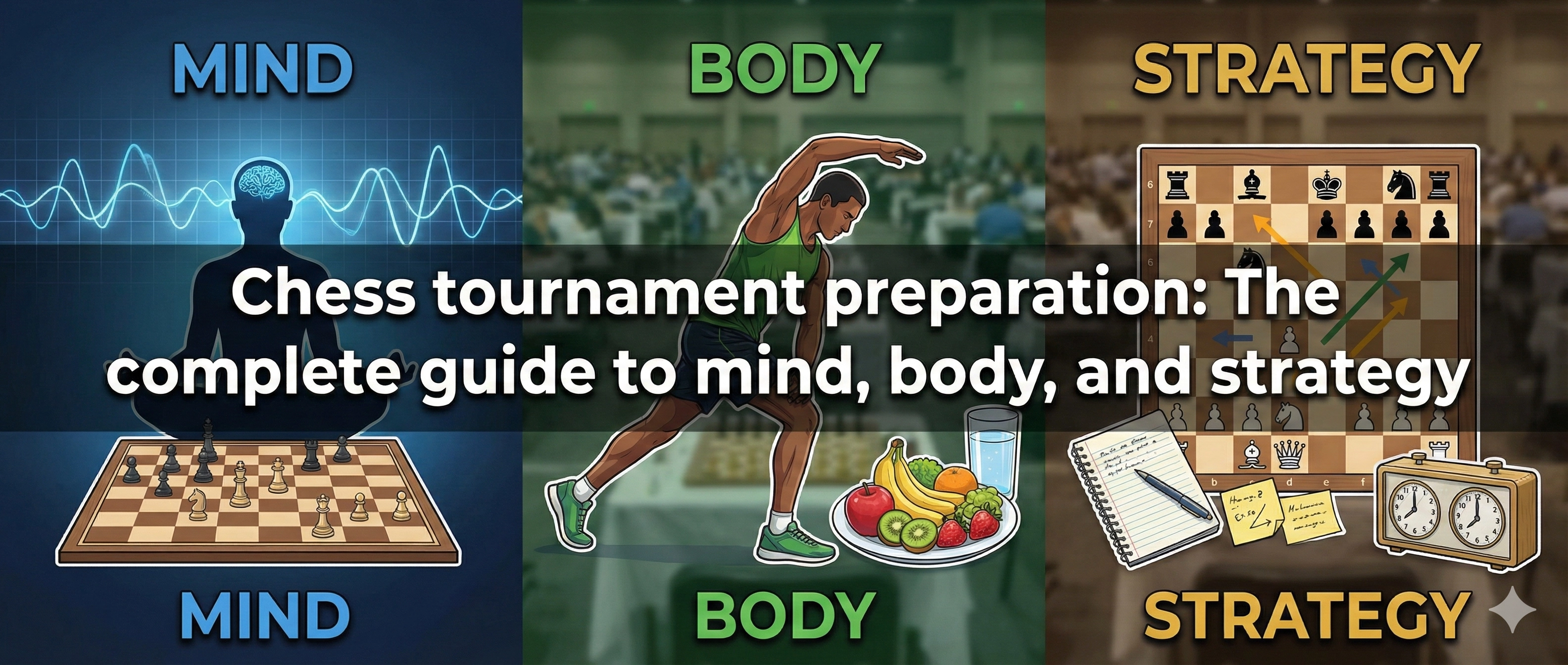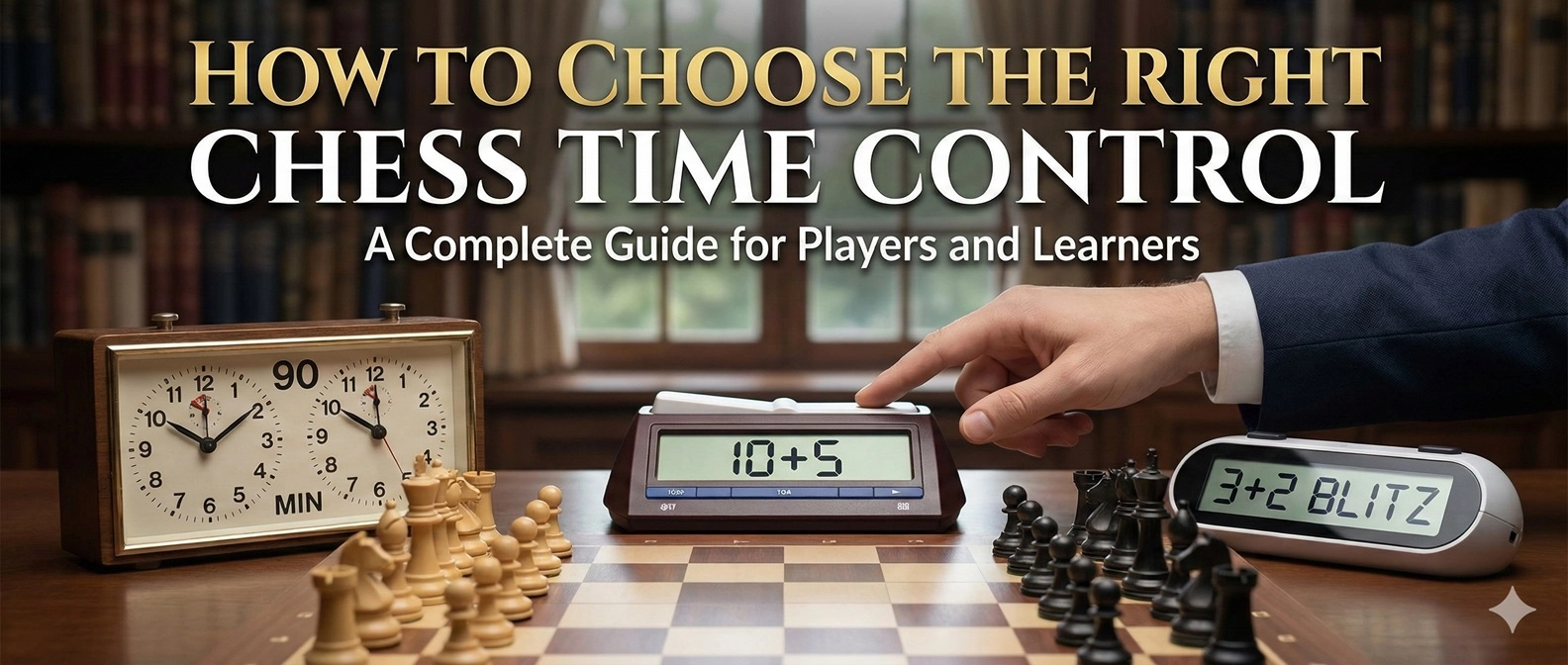Well, chess was a popular game even before Netflix’s hit series Queen’s Gambit took over the world. Be it a lazy Sunday afternoon or a quiet library, you will find people enjoying an exciting chess match at some random corners.
Undoubtedly, chess is everybody’s favorite tabletop game and one of the most recognized indoor games. However, in this blog, I will not discuss how to play chess or why it’s our favorite.
Instead, I want to talk about the benefits of playing chess. You may have heard here and there how chess increases concentration and enhances our memory. But once you learn about its benefits in detail, you will be as amazed and surprised as I am.
First, checkout this video and then let's dive into details.
- Ten Benefits of Playing Chess
- Conclusion
- FAQ’s
- 1. What are the main benefits of playing chess?
- 2. How does playing chess improve mental skills?
- 3. Can chess help with academic performance?
- 4. What age is suitable for starting to play chess?
- 5. Does playing chess promote social skills?
- 6. Is there a physical benefit to playing chess?
- 7. How often should one play chess to see benefits?
- 8. Are there online resources for learning chess?
- 9. Can chess be used as a therapeutic tool?
- 10. Where can I find chess communities for playing?

Ten Benefits of Playing Chess
1. Increases IQ Level
One of the most well-known benefits of chess is its ability to increase IQ levels, and research confirms it. A study in Venezuela on 4,000 second-grade students found that just 4.5 months of chess training significantly improved their IQ scores. Another study in Belgium of 33 tournament-level players showed an average IQ of 121, placing them in the top 8% of the population.
Beyond boosting intelligence, chess is accessible, affordable, and easy to learn at home. While not every child may respond the same way, the benefits make it worth giving chess a try.

2. Reduces ADHD Symptoms
ADHD stands for attention deficit hyperactivity disorder. Although it sounds very wordy and serious actually, ADHD is quite common, especially in children. According to a report by the Journal of Clinical Child and Adolescent Psychology (2018), around 6.1 million children aged between 2 to 17 years in the U.S.A were diagnosed with ADHD.
Again, most ADHD symptoms go unnoticed and undiagnosed because the majority of parents presume the symptoms to be regular childish tantrums. Let me ask you a few questions:
Is your child interrupting conversations and games they aren't part of? Do they leave tasks / homework / projects unfinished? Have they been showing temper tantrums lately? If you are answering yes, your child may or may not be struggling with ADHD.
However, the above symptoms are a few of the most common symptoms seen in children. My point is most kids are naturally restless, fidgety, and moody. And while everybody doesn't need professional help, I suggest parents try chess.
In fact, studies show that children are staying longer on task, controlling their actions and outbursts, and maintaining focus after taking a biweekly four-month chess training.
3. Helps in Cognitive Development
A child's journey from being dependent on their parents to becoming an adult so much so depends on their cognitive development.
Now, some readers may be thinking, what is cognitive development? Well, cognitive development includes how kids think, explore various things, and figure out the meanings. In short, it can not only influence your child’s performance at school or future career prospects but also plays an important role in shaping their worldview.
And, there are several pieces of research and studies that claim that chess helps in cognitive development. Therefore, there are many schools across the world that made chess a compulsory subject for elementary and middle schools. If you also want to boost your child’s cognitive development, teach your child how to play chess.

4. Increases Concentration
A chess match is all about concentrating on the game—guessing your opponent's moves and figuring out the next moves based on that. If someone plays chess for a significant period, that person is bound to have better concentration power than other people. So, if you feel you or somebody you know lacks concentration, I suggest you try playing chess.
5. Teaches Problem-Solving Skills
Besides increasing concentration, chess is also a very good option to train yourself or your child in problem-solving skills.
I cannot recall if there is any other game that teaches problem-solving skills as easily as chess does. After all, this game is all about finding the solution to your opponent's tricky moves. In addition, chess is popular for improving school children’s mathematics grades.
If you think your child takes time to solve a math problem, try playing chess with them. Undoubtedly, it’s of the most popular benefits of playing chess. And, I am sure, it will help both you and your little one.
6. Reduces
The risk of Dementia, Alzheimer’s disease, and Schizophrenia Is chess only beneficial to kids? Nope. Chess is equally helpful and beneficial for adults and elderly people. It is one of the handfuls of games that enhances memory. Be it a child or an adult, playing chess regularly can help you increase your memory. In fact, there are several studies that show playing chess can remarkably reduce the symptoms of dementia, Alzheimer’s disease, and Schizophrenia.
7. Develops Grit
And Resilience Dear reader, you may have already heard uncountable times—life is hard. I agree. Yes, life is tough, and our every day comprises of uncountable big and small obstacles.
Sometimes, it can be as small as realizing you have no cereal sitting at breakfast, and sometimes, it can be huge problems related to money and career. While none of us have control over the future, we can at least prepare ourselves for facing day-to-day obstacles.
And if you are ready to develop grit and resilience, I recommend chess. Playing chess equips you to handle challenges effectively. By playing chess just twice a week, you'll see noticeable changes in your mindset within a few months.
The game helps you become accustomed to the frustration of dealing with uncontrollable situations. Over time, you'll understand that while you can always strive to do your best, the outcome is beyond your control.
8. Encourages Sportsmanship
Sometimes, losing at games or earning bad grades can take a toll on kids. Although it sounds very silly to adults, it becomes a matter of life and death for kids
However, while playing chess, kids gradually get used to losing pieces. Be it pawns, kings, and queens, they eventually learn that losing something is okay. Such qualities not only help in building good characters but also encourage kids to face their fear.

9. Increases Patience
In my teaching career, I have only seen a handful of children who are patient. Most kids are impatient and aren’t eager to learn etiquettes. And, that is okay! Because this is how kids are kids.
However, I don’t encourage parents or adults to stop trying to teach the importance of patience. After all, patience is not only a virtue but also a very important factor in personality development. One of the prime benefits of playing chess is patience.
During a chess match, your kid will wait for their turn. And this brief, insignificant waiting can teach patience and also the basic etiquette of responding when they are talked to or asked for.

Conclusion
In conclusion, crafting a compelling conclusion is essential to wrap up your blog post effectively. It reinforces your main points and leaves your readers with a lasting impression. Here are some strategies to create an impactful conclusion:
Summarize Key Points: Briefly revisit the main ideas discussed in your post to reinforce the message.
Call to Action: Encourage your readers to take specific actions, whether it’s sharing their thoughts, subscribing to your blog, or trying something new related to your topic.
Leave with a Thought-Provoking Question: Engaging your audience by asking them a question can invite interaction and keep the conversation going.
End with a Strong Statement: A powerful final statement can linger in the minds of your readers, prompting them to reflect on your content.
By integrating these elements, you can create a conclusion that resonates with your audience and enhances the overall impact of your blog post.
FAQ’s
1. What are the main benefits of playing chess?
Playing chess offers numerous benefits, including improving critical thinking, enhancing memory, increasing problem-solving skills, and promoting patience and discipline. It also fosters creativity and helps in developing strategic planning abilities.
2. How does playing chess improve mental skills?
Chess challenges players to think critically and strategically. It requires analysis, foresight, and the ability to anticipate an opponent's moves, which in turn sharpens cognitive functions such as memory and problem-solving skills.
3. Can chess help with academic performance?
Yes, studies have shown that students who play chess often experience improved academic performance. The game enhances analytical skills and concentration, which can be beneficial in subjects like mathematics and science.
4. What age is suitable for starting to play chess?
Children as young as 5 or 6 years old can start learning chess. The game can be adapted to different skill levels, making it accessible for all ages. Early exposure can foster critical thinking skills.
5. Does playing chess promote social skills?
Absolutely! Chess is often played in groups, both in-person and online. It encourages social interaction, teaches good sportsmanship, and helps players learn to deal with winning and losing gracefully.
6. Is there a physical benefit to playing chess?
While chess is predominantly a mental game, it can contribute to better focus and concentration, which can lead to overall improved cognitive health. Additionally, it can be part of a balanced lifestyle when combined with physical activities.
7. How often should one play chess to see benefits?
Consistency is key! Playing chess regularly, such as a few times a week, can help maximize its cognitive benefits. Engaging with various opponents can also enrich your experience and skills.
8. Are there online resources for learning chess?
Yes, there are numerous online platforms, tutorials, and forums available for learning chess. Websites like Chess.com or Lichess.org offer lessons, puzzles, and the opportunity to play against others worldwide.
9. Can chess be used as a therapeutic tool?
Yes, chess has been used in therapeutic settings to help improve mental health and cognitive functioning. It can provide a sense of accomplishment and improve focus, thereby reducing stress and anxiety.
10. Where can I find chess communities for playing?
You can find chess communities both locally and online. Many cities have chess clubs, and various social media platforms and websites host forums and groups dedicated to chess enthusiasts. Online platforms like Chess.com or Meetup can also connect you with local players.






Comments